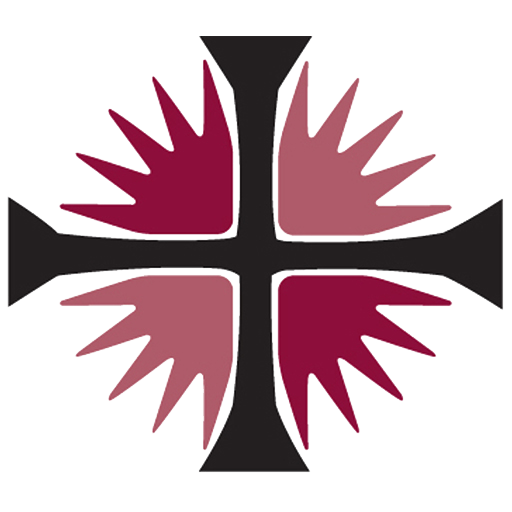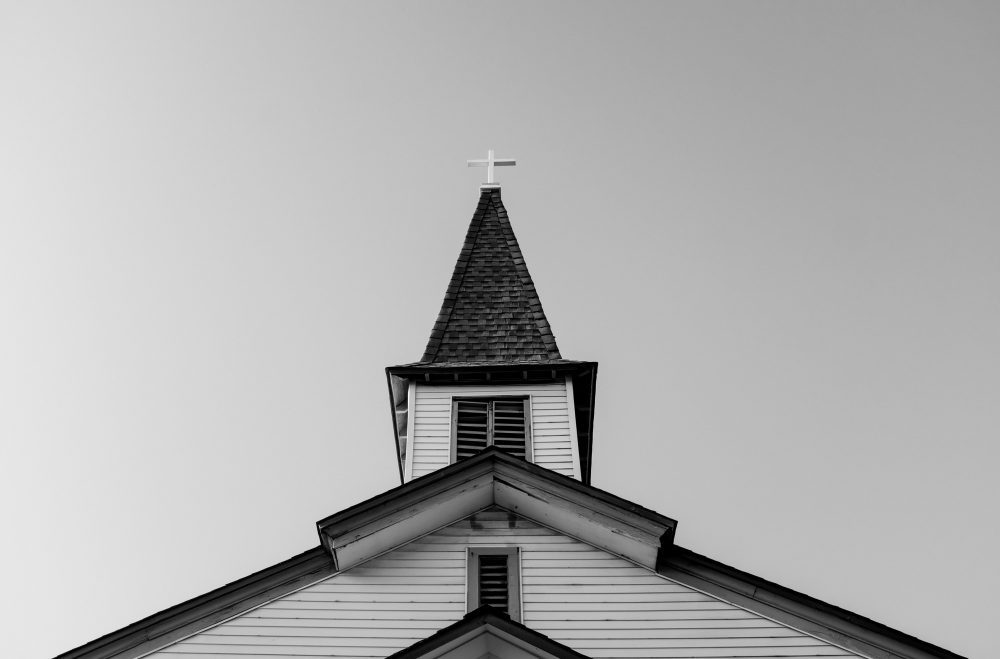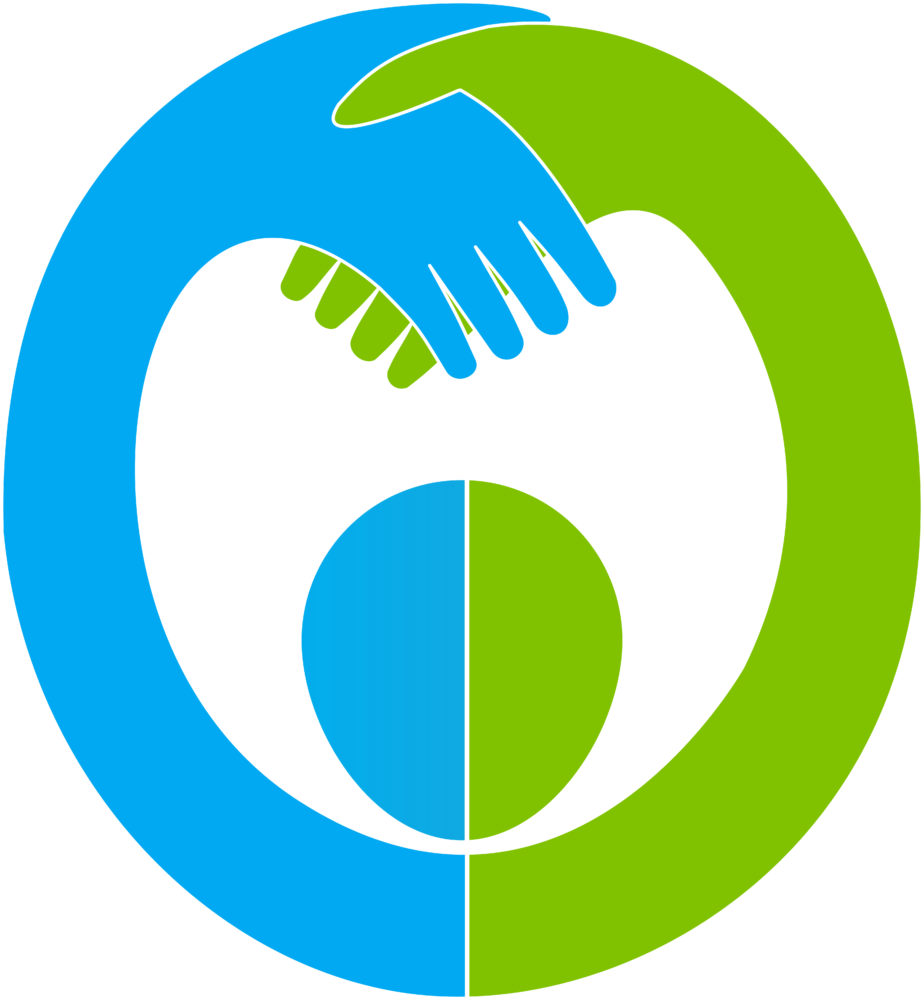
HICKORY, NC — Founded by the Rev. Michelle Mathis and her wife Karen Lowe, Olive Branch Ministry is a faith-based harm reduction agency covering nine counties in the foothills and piedmont of North Carolina. The ministry which includes a syringe exchange program, post overdose response team, homeless outreach and a holistic harm reduction center continues to be a safe, nonjudgmental community space welcome to all. This work has been a key focus of Michelle and Karen’s lives, but began while they were still holding full-time jobs — in Michelle’s words, they “worked nine to five to pay for their five to nine.” We spoke with Michelle to learn more about how this calling became their full-time work: “In the fall of 2017, I heard a story on NPR coming home from work one day about an overdose response team working out of Rhode Island called Anchor ED [Emergency Department]. It was a direct-response team so if someone overdosed, there were peer supports who went to the emergency room and sat with that individual and worked to give them linked care — ‘care’ being harm reduction or abstinence-based, whatever the person needed. I emailed my bosses that night and went to them the next day — I worked in hospital administration — and said, ‘I think we can do this, what do you think?’ They knew my passion for harm reduction, and the hospital was beginning to address the overdose crisis, so they said, ‘Get a group together and let’s meet.’ So we formed a group, we met, we planned, and in January, we got everything taken care of and worked out, and the local LME [Local Management Entity] offered Olive Branch the contract to start the Overdose Response Team. My wife and I talked about it, and we decided it’s what we wanted to do, so I quit my job and started at Olive Branch full-time. Three to four months later there was another contract offered that allowed my wife to come work for us full-time, so she quit her job and now we have been doing this full-time since 2018.”
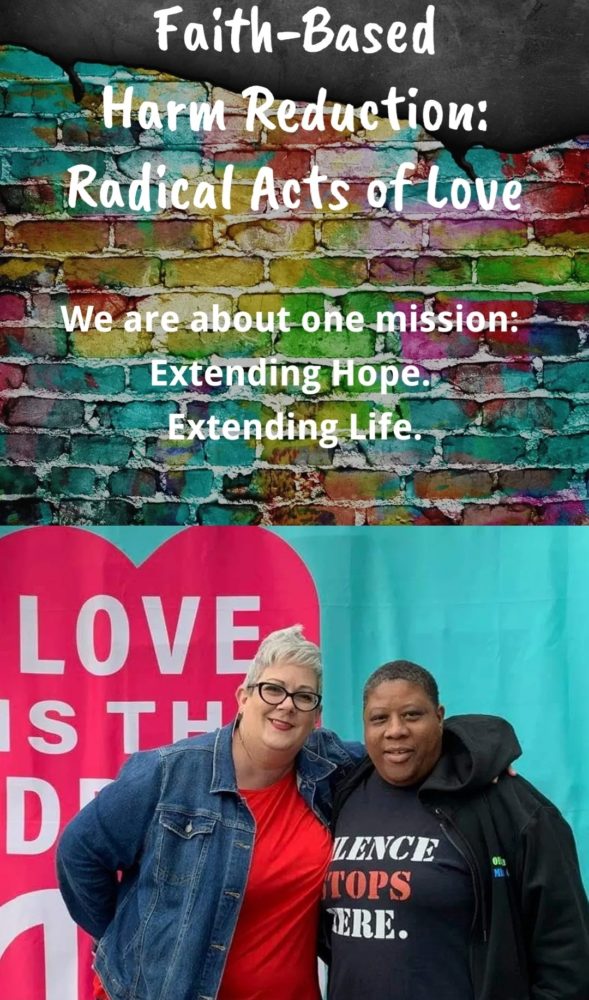
Michelle is not only the co-founder and executive director of Olive Branch Ministry, but also chair of the NC Harm Reduction Coalition Board, and serves on the Leadership Advisory Team for National Faith in Harm Reduction. Although Michelle is directly involved in this work through Olive Branch’s syringe exchange and outreach work, she mentioned that involvement is different for everyone: “We work with the Catawba Crafters, a group who crochets hats and scarves for people experiencing homelessness, and making medical bags for people at nursing homes to hang on their wheelchair and carry around with them — as they like to call themselves, the “Hookers for Hope.” We got to talking one night about doing it for naloxone [an overdose reversal drug]. The ladies in this group are in their sixties, seventies, and eighties, and don’t have any desire to interact with people who use drugs, but they were willing to make the bags for us because they knew it was lifesaving. That shows the importance of meeting people where they are, not just people who use drugs, but also people who want to help, and understanding that not everyone who wants to be involved will want to be at the same level. We don’t expect you to run a syringe-access program out of your church, but there are things you can do to participate in harm reduction as an organization of faith that will make your congregation comfortable while still making a difference.”
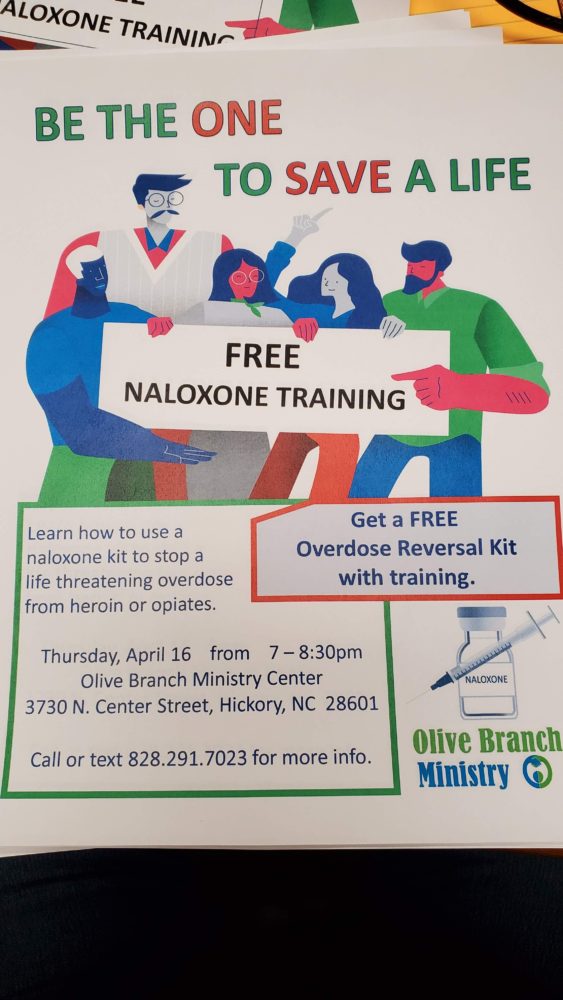
Extensive research has shown that the opposite of addiction is not sobriety, it’s human connection. Harm reduction work is saving lives and building the beloved community through restorative, healing action. Michelle reflected on how Olive Branch has brought her into this beloved community and shaped her life: “The highlight for me is being able to walk in my calling with my spouse and knowing that we are doing what we have been called to do and finding family in this space. It’s wonderful to help people and it’s wonderful to serve people, but that puts the emphasis on you. That’s not what this is about. This is about being a servant and being obedient and simply being available. I often talk about the ‘ministry of presence’ – just being there and being available.”
Michelle emphasized that we as people of faith can find our place in this work by looking to the story of Lazarus: “I often finish my talks with the Council of Churches telling the story of Lazarus. The outcome of that story is that everyone has a role to play: the people that notified Jesus had a role to play; the people that led Jesus to where Lazarus was in the tomb had a role to play; the people who Jesus called to roll away the stone had a role to play; even Lazarus had a role to play because Jesus called him to come forth. Everybody had a role to play, but nobody was a miracle worker except for Jesus. We can’t go into this work being miracle workers. We can help facilitate and be available and be obedient in whatever role it is we are called to play, but even in the end after the miracle had been performed, nobody could see it because Lazarus was still bound, so Jesus told people to go forth and unbind him — those folks had a role to play. Those that were willing to unbind Lazarus were able to look the miracle in the eye and be face to face with this new creation that God had brought forth, but that’s not everybody’s calling. Everybody has a role to play and everybody is equally important, but be okay that wherever you are called to serve — your service is necessary, wanted, and desired.”
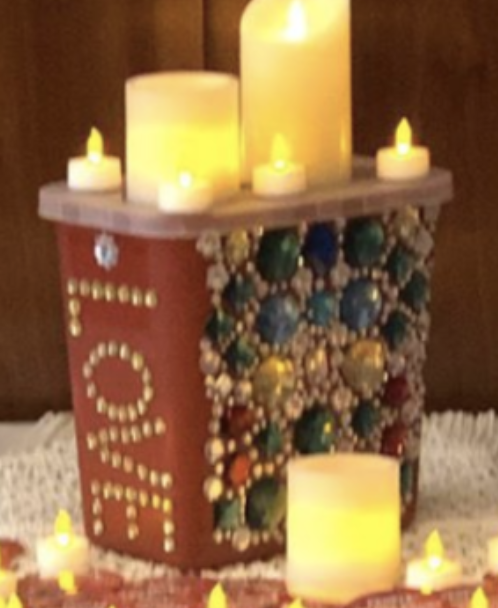
We are grateful to Michelle Mathis for sharing her journey. We are humbled to be part of the harm reduction community — a community that, at its core, strives to welcome and love all of God’s children. If you are interested in learning more about the overdose crisis and faith-based harm reduction work check out our Sunday school guide “Go Unbind Him: Opioids and Harm Reduction through the Lens of Faith,” or contact Elizabeth Brewington, Overdose Crisis Response Program Coordinator, at elizabeth@ncchurches.org.
